CATEGORIES
Kategoriler
Son Hikayeler

IN SEASIDE, LIVING IS A WAY OF LIFE
YOU MIGHT NOT expect there to be much for libertarians to like about a town that boasts a master plan, where design conformity is rigorously enforced across virtually every building and street, and whose admirers wax poetic about a building code that covers “everything from building materials to roof pitch.”

In Defense of 'Tourist Traps'
IF YOU EVER go to New Orleans, one of your first stops should be the very unhidden gem of Café Du Monde’s French Market location. There you can buy some New Orleans special beignets and, if the weather is hot enough (it almost certainly will be) a frozen coffee to wash them down.

12:00 THE RISE-AND DEMISE?-OF FREQUENT FLYER MILES
I JOINED MY first frequent flyer program—American AAdvantage—before a trip to Australia in 1991. Sadly, I let those miles expire. Five years later I was out of college, flying regularly for work, and reading all the materials airlines used to send in the mail.

Tiny Nations in the Crack of the Map
AFTER THE INITIAL thrill of a few stamps on one's passport, the idea of touching down in yet another nation-state may seem jejune. After you've seen one nation-state, how truly different can another one be? Airports and highways with instantly navigable signage, cultures and cuisines flattened to meet the supply and demand of global trade, traditions reduced to photo opportunities—just more of the same.
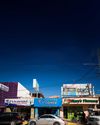
The Glories of Mexican Dentistry
I CROSSED THE U.S./Mexico border six times in a month in 2018, an economic refugee in my own way.
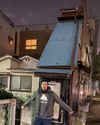
CAPITALISM IN THE CRACKS
A THREE-STORY HOUSE tucked into a mere one-meter gap between tall buildings. A flower shop shaped like a triangle, wedged between a retaining wall and the sidewalk. A standing bar humming with laughter beneath the rumble of passing trains. In most cities, these spaces would be dead zones—awkward, overlooked, written off by zoning and building codes as unusable.

Tropical Culture in Canada's Multicultural Arctic Outpost
ON SATURDAY NIGHT, I had Indian food at a mosque potluck. The next day, I went to an African church service full of gospel music. In between, I went to a hockey game and stood on sea ice to watch a dogsled race. That's life in Iqaluit, a Canadian boomtown on the edge of the Arctic.
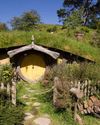
11-Day Middle-earth Fantasy in New Zealand
IT’S LITTLE SURPRISE that many libertarians count The Lord of the Rings among their favorite stories.

The Final Vacation Frontier
LOOKING TO GET really away from it all? How about 250 miles straight up and traveling at 17,500 mph away from it all? This year, why not take a vacation in low earth orbit—specifically, on the International Space Station (ISS)?
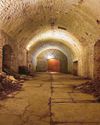
A CITY BUILT BY IMMIGRANTS—AND BEER
FAR BELOW DOWNTOWN Cincinnati, you'll find large stone-and brick-walled caverns with dirt-strewn floors. Their great arched passageways loom over piles of century-old rubble, vast vats that once overflowed with beer, and recently added stairways to assist tourists passing through.

TRUMP'S CRACKDOWN ON FOREIGNERS IS CRIMPING AMERICANS' TRAVEL PLANS
AS THE TRUMP administration began snatching college students, detaining legal European tourists, denying entry to British crust-punks, rejecting transgender passports, deporting tattooed Salvadorans, insulting the sovereignty of Canadians, and floating plans to ban visitors from 43 countries, the domestic travel and tourism industry braced itself for bad news.
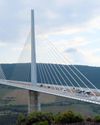
A Beautiful Private Bridge
FOR MY 80TH birthday, my wife Lou offered to plan a trip somewhere I'd always wanted to go. I chose the Millau Viaduct—Europe's highest and most wonderful bridge.
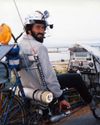
The Rise of the Digital Nomad
\"IT WAS A grueling three-hour commute to my Colorado office this morning. I left Telluride with a yellow day pack strapped to my back, and climbed north into the mountains through the golden glow of early-October aspens,\" wrote Steven K. Roberts in his 1988 book, Computing Across America.
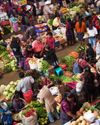
THE NEARLY FREE MARKETS OF GUATEMALA
EVERYONE KNOWS ABOUT the McDonald's Happy Meal—a global icon, with its bright box, its golden arches, and a toy that keeps kids entertained long after the fries are gone. What most don't know is this worldwide sensation was born in Guatemala, a small Central American country more often associated with coffee, bananas, and (unfortunately) crime.

Visit Your Ancestral Homeland
LAST YEAR I honeymooned in Rome, which was a long day trip from the tiny 2,500-year-old village in the Campania region of Italy that my maternal grandparents left in the 1910s. Of course I had to go—it was surely my only chance to see where that side of my family had come from.

PASTÉIS AND PARENTING IN PORTUGAL
MY BABY WAS stolen in a Portuguese airport.
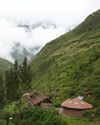
Losing My Religion, Finding My Humanity at an Ayahuasca Retreat
AS THE SECOND ceremony commenced and I was handed my half-dose of the plant medicine, I took a deep breath and thought, “This is going to be an amazing night.”

6 PLACES TO REALLY GET AWAY FROM IT ALL
SURE, PEOPLE ARE great, but sometimes you really want to be an individual—alone. Solitude and quiet, unfortunately, are becoming a luxury commodity. Here are six out-of-the-way places offering unique experiences to the antisocial traveler.

TO HIDE FROM THE STATE, OR TO ESCAPE?
IN HIS 1970 classic Exit, Voice, and Loyalty, Albert O. Hirschman explored three ways people can respond to institutional failure: by standing by the institution anyway, by speaking up to agitate for change within the institution, or by leaving the institution in protest. The European wars of religion, and persistent attempts by the victors in those conflicts to hem in the losers, produced manifold examples of all three.
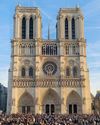
NOTRE-DAME REBORN FROM THE ASHES
FIRE NEARLY DESTROYED the Notre-Dame Cathedral in 2019. Thanks largely to an outpouring of private donations, the cathedral now shines more brilliantly than it has for centuries.
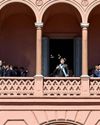
See Milei's Transformation of Argentina First-Hand
THE SUGGESTION THAT Argentina could be the home of a self-described libertarian president would have seemed far-fetched, to say the least, only a few years ago. Yet today Javier Milei's Buenos Aires is the city where libertarian history is happening.
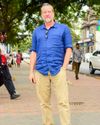
HOW TO WALK, AROUND THE WORLD
CHRIS ARNADE IS a photojournalist and the author of the Substack newsletter Chris Arnade Walks the World. He spent a decade walking through American landscapes and documenting what he saw. Now he has expanded his project to include cities around the globe, whether they’re large or small, and whether they’re easily walkable or not. His newsletter documents his mileslong walks off the tourist-beaten paths, showcasing real people everywhere from the Faroe Islands to Albany, New York; from Phoenix to Nairobi, Kenya.
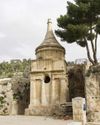
CONFLICTS AND CONTRASTS MAKE JERUSALEM ENDLESSLY FASCINATING
THE CHURCH OF the Holy Sepulchre, traditionally identified as the site of Jesus Christ's crucifixion and resurrection, is shared by half a dozen denominations under a baroque \"status quo\" agreement signed in 1757.
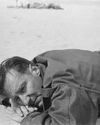
A Beatnik Tourist in Ayahuasca Country
LONG BEFORE IT was popular for New Age norteamericanos to visit the Andes Mountains seeking psychedelic enlightenment from ayahuasca, the Beat novelist William Burroughs made the trek. But he took the journey in 1953, when the literary template for a psychonautic vision quest had not yet been set—not that a grumpy cynic like Burroughs was likely to write that way in the first place. Instead his account feels like the diary of an easily aggravated American tourist with firm views on the quality of the local hotels, officials, “god awful greasy food,” and prostitutes.
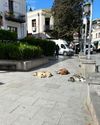
The Possible Birthplace of Wine and Definite Birthplace of Stalin
THE PEOPLE OF Georgia might well be the first folks who ever got properly wine-drunk.

Wildlife Thrives on Privately Owned Reserves
SITTING IN THE front seat of an open Land Rover being driven furiously backward for about a half-mile while being chased by a bugling, ear-flapping, and very pissed off elephant matriarch is, well, pretty exciting. Our guide later speculated that she had been spooked earlier by a roving pride of lions.

Gripper the Class Turtle
IN 1993, A student at my wife's elementary school brought in a box turtle he'd found in the wild. My wife agreed to keep Gripper as a pet for her second grade class.

FULL SPEED AHEAD
THE TEEN WAS TRAPPED IN A CAR ACCELERATING OUT OF CONTROL. COULD IT BE STOPPED BEFORE HE RAN OUT OF ROAD?

SUN, FUN & PLASTIC SURGERY?
Americans are packing their bags and heading abroad for more affordable health care. Is that a good idea?

DIG IN!
CLASSIC COMFORT FOODS FROM ALL 50 STATES
